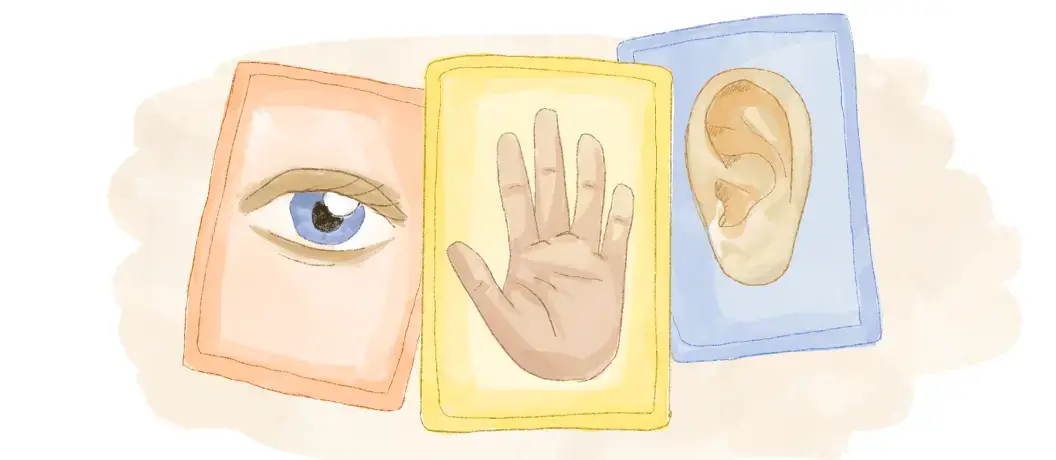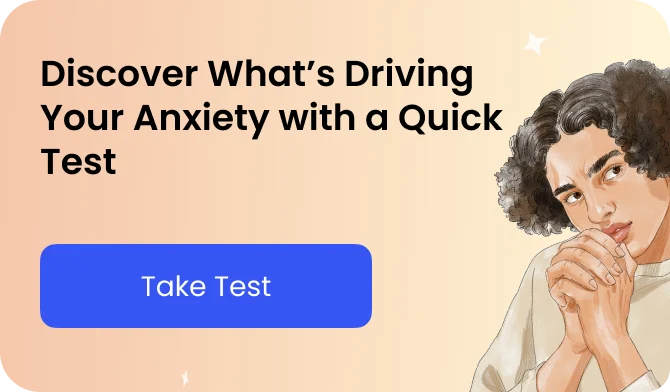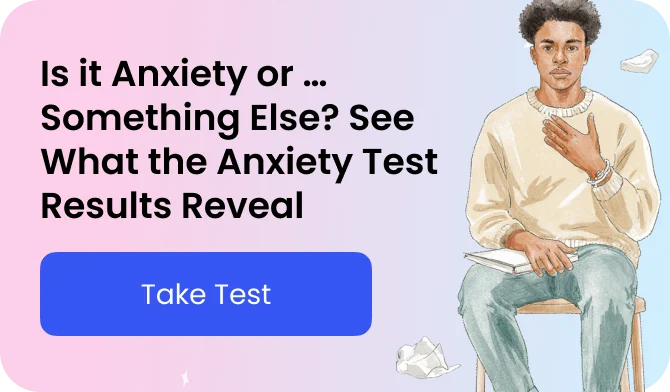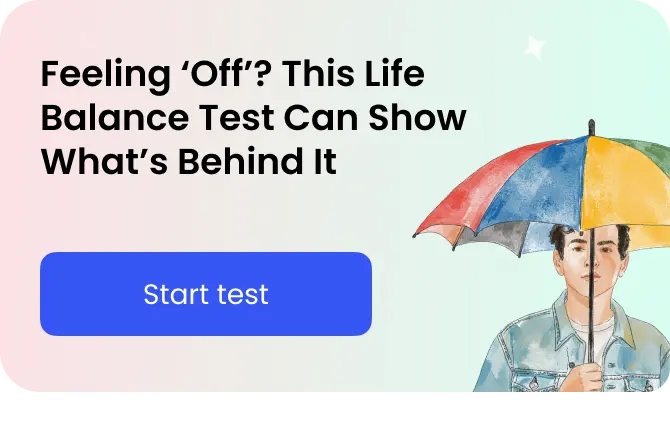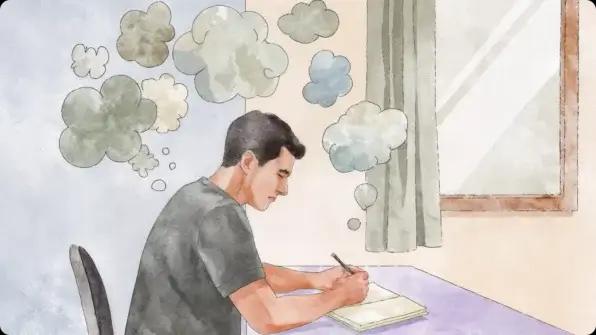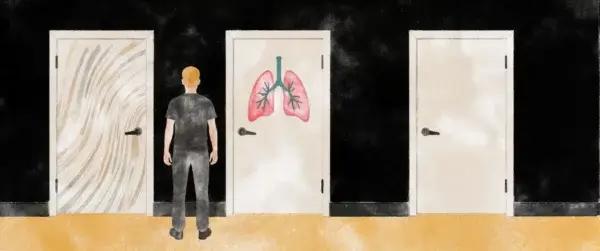Overwhelming. Restraining. Unstoppable. Does your anxiety feel like this? If yes, you’re probably dealing with an anxiety attack.
It can prevent us from doing even the simplest things and make us completely unable to concentrate and manage our emotions. However, there’s a way out!
Psychologists have created dozens of practical tips on how to cope with severe anxiety. Read further to learn more about the 333 rule and other grounding techniques that will help you feel better in the moment.
Whether you need to overcome a rollercoaster of emotions right now or develop long-term coping skills, give them a try.
What is the 333 Rule for Anxiety?
Can you imagine? Anxiety disorders affect 19.1% of the US population. Nevertheless, only about 40% of people with this cognitive difference receive appropriate treatment.
If you have difficulties managing your anxiety, in addition to therapy, there are practical self-help techniques that may become your helping hand.
So, what is the 333 rule? It’s a step-by-step approach that you can quickly apply in moments of anxiety attacks. In a nutshell, you need to:
- Name 3 things you see. These can be everything, from a tree outside the window to the screen of your laptop.
- Name 3 sounds you hear. It can be the singing of the birds, a weird dialogue on TV, children screaming outside — anything.
- Move 3 body parts. For instance, raise your hands, scratch your nose, or take a step. Try to feel your body.
The 333 method is excellent for grounding and shifting focus from overwhelming thoughts to the present moment. Another advantage is that you can do it even in a crowded room, and no one will notice. Close your eyes, take a deep breath, or turn your head.
These small steps for taking care of your mental well-being will prevent you from severe stress.
Does the 333 Method Work?
While there’s no specific research on the effectiveness of the 333 rule, many people have found it useful to combat anxiety. There are proven reasons why the 333 survival rule may be helpful for slowing the anxiety wheel.
The rule grounds its principles in mindfulness. It helps us get back to the present moment, feel alive, and start acting here and now. This makes it a great coping mechanism that has an immediate influence.
As the research states, Mindfulness-Based Cognitive Therapy (MBCT) has a significant favorable effect on anxiety disorders. It helps people manage their influence and deal with the symptoms on a daily basis.
So, if you’re thinking about how to calm anxiety and need an always-in-hand tool to manage its attack at the moment, save this simple technique. Next time you feel stressed or troubled, try these steps and check how they influence your state.
Pro tip. You can also use the 333 anxiety rule to add mindfulness to your life. By making this mechanism habitual, you’ll use it automatically in times of stress, this way reducing the influence of anxiety attacks on your daily life.
The 333 technique is a helpful and effective tool to manage your anxiety, but it’s not the only strategy available. Continue reading as I share more strategies to combat anxiety. This will let you ground yourself and feel the relief faster.
How to Cope with Anxiety Attacks — 7 Practical Hacks
Ashley Coon, MA, LPC comments, “Anxiety can be challenging to manage or overcome, but incorporating healthy coping strategies such as mindfulness, grounding, and relaxation techniques are simple ways to gain control of your life again.”
We’ve already highlighted 7 tips on how to stop worrying about everything that will help you establish emotional stability in the long term. So, now, let’s focus on method 333 and other grounding techniques to help yourself immediately when anxiety takes over.
1. 5-4-3-2-1 method
Like the 333 rule, it can also help during a panic attack. By noticing things around you, you’ll get back to the present faster and will be able to control your emotions better. So, you need to name:
- 5 things around you
- 4 things you can touch
- 3 things you hear
- 2 things you can smell
- 1 thing you can taste
Pay attention to how you breathe. It’s vital in all grounding exercises like the 3 3 3 rule for anxiety or the 5-4-3-2-1 technique. Take slow and deep breaths; they will help you relax your body, calm your mind, and feel better faster.
2. Diaphragmatic breathing
Actually, why is breathing so important in coping with anxiety? Let’s analyze this moment quickly.
101 explanation. When stressed, our body releases hormones that cause fight, flight or freeze responses. Our limbs receive more oxygen to deal with the situation, while our brains receive less, which harms the ability to think clearly. Even when the problem isn’t real, your anxiety may become overwhelming.
Deep breathing and grounding techniques activate the parasympathetic nervous system that helps your brain understand that you’re safe and there’s no need to panic or escalate the stress response.
Diaphragmatic breathing is one of the most effective coping skills for anxiety in the moment. It works when you need to calm down before a job interview, serious exam, or important meeting. When feeling stressed, contract the diaphragm, expand the belly, and take deep breaths. You’ll notice the difference after the first minute or two.
3. Exercise and physical activity
You don’t need to run a marathon or win a competition in weightlifting. 15 minutes of exercise a day and 30 minutes of walking will be more than enough for anxiety coping.
Do you want more? Great! But don’t force yourself; find an activity that makes you happy and adds sense to your life. Gabrielle Union prefers cardio, Ellie Goulding likes kickboxing, and Jonathan Van Ness chooses yoga. Any sport will be effective if you do it with enjoyment and passion.
Impressive stats. 65% of people who include light exercise in their routine reported improved mental health. So, maybe give it a chance!
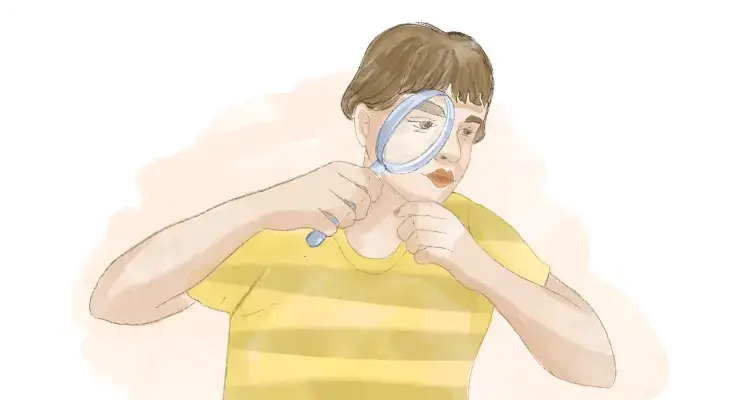
4. Positive affirmations
While the 333 rule for anxiety is excellent for grounding, there are also approaches to nurturing self-love. Positive affirmations help ensure your brain that everything is OK and there’s no need to panic.
Imagine speaking to your anxious thoughts as if they were a scared child who needs an adult for support and help. Affirmations are about showing yourself self-compassion and self-love. As a result, these statements can shift your mindset from fear and insecurity to confidence and self-assurance.
Let’s take a look at some examples:
- “I let anxious thoughts go; they can’t control me.”
- “I am safe and trust in my ability to handle any challenges.”
- “I choose peace over worry and release all tension from my mind and body.”
- “I am in control of my thoughts and choose to focus on the present moment.”
- “I am strong, resilient, and capable of overcoming any obstacles.”
- “I trust life and know that everything will work out for the best.”
If you’re looking for more healthy ways to cope with anxiety, create a board filled with self-love quotes and read them every time you feel stressed. This will let you surround yourself with care and encouragement.
5. Healthy distractions
Have you seen the animated film “Inside Out”? In this movie, a teen, Riley, navigates the challenges of everyday life and experiences various emotions. During the moments of anxiety, she plays hockey, spends time with friends, and does pleasant things to shift her focus.
In fact, this is one of the best ways to handle anxiety if you face it regularly. Process it, feel it, and let it go. Stress and overwhelming emotions shouldn’t prevent you from living the life you want to. The only thing you should remember is to choose healthy, fulfilling distractions. These can be:
- Journaling
- Listening or playing to music
- Art
- Dancing
- Talking with friends
- Spending time with pets
6. Mindfulness and meditation
Why do we feel anxious? Usually, because we worry about the future. So, how about focusing on the present moment? Just like the 333 method for anxiety, mindfulness and meditation work perfectly as well.
How to meditate? You can sit in a comfortable position and focus on your breathing, or choose a guided meditation and follow the voice to let the emotions pass through you. The most important thing is to stop judging yourself. Observe what happens in your head and enjoy the beauty of the present moment.
Celebrities like Miley Cyrus, Kendall Jenner, and Lady Gaga regularly practice meditation.
Add it to your list of coping techniques for anxiety, and try it the next time you feel stressed.
7. Walks in nature
One of the most effective ways in both the short and long term is to go for a walk in nature. Research states that it can reduce stress and positively influence your mental health.
It doesn’t necessarily need to be a trip to the mountains or a day in the forest. Visiting the nearest park or slowly walking near the river might be enough to feel calmer.
How to overcome anxiety if you can’t leave your working place right now? Turn on nature sounds, like birdsong, rain, or gentle ocean waves, to create a soothing atmosphere.
Additionally, you can look at some photos or videos from nature, as they also have a calming influence.
Let’s Recap
In this article, I’ve provided the most effective coping mechanisms for anxiety, including the 333 rule for surviving stressful moments.
Implement the methods above to reduce the symptoms of anxiety and to create a sense of a fulfilling, balanced life. Remind yourself that handling anxiety requires patience and self-compassion, so walk this road step by step and ask for support if you need it.
Here is a pro tip from Ashley Coon, MA, LPC, “A good rule of thumb is to practice coping strategies to reduce anxiety daily — as this will assist you in preventing anxiety as well as combating it at the moment. It’s also helpful to gain awareness of what your usual anxiety triggers and warning signs are — that way, you can recognize them in the moment and utilize your coping strategies of choice. The strategies outlined in this article are very beneficial in anxiety management, and I recommend trying them out the next time you’re feeling anxious.”
Disclaimer
This article is for general informative and self-discovery purposes only. It should not replace expert guidance from professionals.
Any action you take in response to the information in this article, whether directly or indirectly, is solely your responsibility and is done at your own risk. Breeze content team and its mental health experts disclaim any liability, loss, or risk, personal, professional, or otherwise, which may result from the use and/or application of any content.
Always consult your doctor or other certified health practitioner with any medical questions or concerns
Breeze articles exclusively cite trusted sources, such as academic research institutions and medical associations, including research and studies from PubMed, ResearchGate, or similar databases. Examine our subject-matter editors and editorial process to see how we verify facts and maintain the accuracy, reliability, and trustworthiness of our material.
Was this article helpful?
